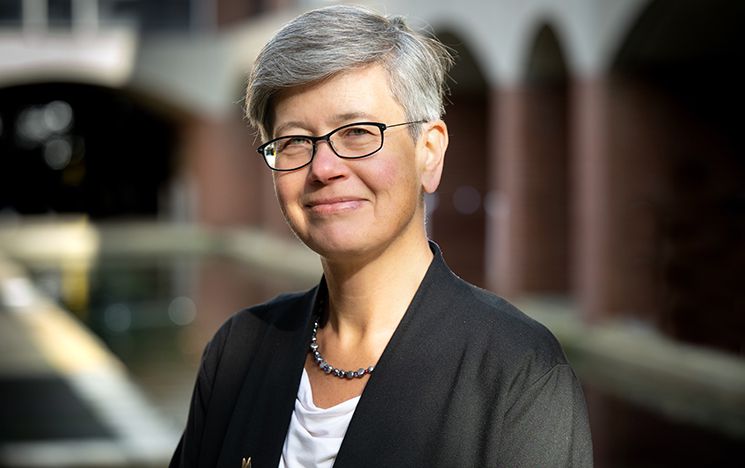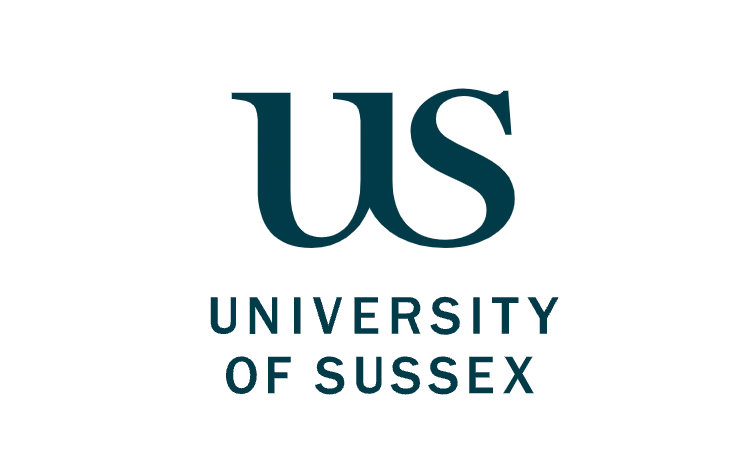News
Discover the latest news and features about our research, our people and our University.
First in the world for Development Studies for nine years running
The University of Sussex, in partnership with the Institute of Development Studies (IDS), has been ranked first in the world for Development Studies in the QS World University Rankings 2025.
Unlocking our potential
Discover research that's driving progress for our planet and its people, built on a belief that any challenge is only #ImpossibleUntilDone.
Our University
Young researchers win European grants worth €3m
Posted on behalf of: Physics and Astronomy
Last updated: Thursday, 9 August 2012
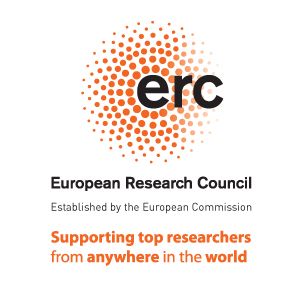
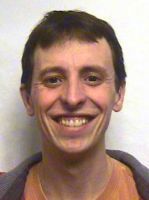
Dr Jeff Hartnell
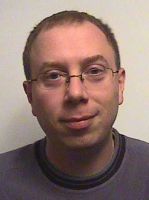
Dr David Seery
Two up-and-coming physicists at Sussex have been awarded research grants totalling €3 million.
Dr Jeff Hartnell and Dr David Seery will each receive €1.5 million Starting Grants – for those in the early years of their research career - from the European Research Council (ERC).
Dr Hartnell, Lecturer in Experimental Particle Physics, plans to support scientific investigations into fundamental issues about the universe and our existence, such as why there is much more matter than antimatter.
Physicists theorise that the big bang created equal amounts of matter and antimatter. When corresponding particles of matter and antimatter meet, they annihilate one another. But somehow we're still here, and antimatter, for the most part, has vanished.
The best measurements to date show that matter and antimatter behave almost identically and so can't explain how we're all here. Scientists believe that neutrinos could hold the key to understanding this mystery.
Dr Hartnell will use the ERC grant to set up a new independent research group at Sussex on the NOvA experiment, which will fire beams of neutrinos and antineutrinos through Earth looking for differences in the way they behave.
Dr Seery, a theoretical cosmologist, studies patterns left over from the universe’s primordial history, when the cosmic environment was much hotter and denser than today. These patterns are currently believed to be the seeds for all structure we can see, including the large-scale distribution of galaxies and ultimately ourselves.
By mapping these patterns, cosmologists hope to discover the currently unknown physics that operated at very early times.
With the benefit of this ERC funding, Dr Seery will set up a research group to carry out the complex calculations that enable data returned from upcoming experiments to be interpreted, including the European Space Agency’s (ESA) Planck satellite (a project involving a number of Sussex academics).
On top of these funding successes, Dr Hartnell and Dr Seery were commended earlier this year for their outstanding teaching – both receiving teaching awards from the School of Mathematical and Physical Sciences (MPS). Dr Seery was also recognised with a University-wide teaching award.
Professor Andrew Liddle, Acting Head of MPS, said: “It's a fantastic achievement for two of our newest faculty to win these prestigious research awards.
“The generous funding that the European Research Council provides will enable each of them to take their research work to a higher level over the coming five years.
“Moreover, this year both Jeff and David were nominated by students for their teaching awards, showing how our students can benefit from being taught by leading young researchers.”
Our people
Young researchers win European grants worth €3m
Posted on behalf of: Physics and Astronomy
Last updated: Thursday, 9 August 2012


Dr Jeff Hartnell

Dr David Seery
Two up-and-coming physicists at Sussex have been awarded research grants totalling €3 million.
Dr Jeff Hartnell and Dr David Seery will each receive €1.5 million Starting Grants – for those in the early years of their research career - from the European Research Council (ERC).
Dr Hartnell, Lecturer in Experimental Particle Physics, plans to support scientific investigations into fundamental issues about the universe and our existence, such as why there is much more matter than antimatter.
Physicists theorise that the big bang created equal amounts of matter and antimatter. When corresponding particles of matter and antimatter meet, they annihilate one another. But somehow we're still here, and antimatter, for the most part, has vanished.
The best measurements to date show that matter and antimatter behave almost identically and so can't explain how we're all here. Scientists believe that neutrinos could hold the key to understanding this mystery.
Dr Hartnell will use the ERC grant to set up a new independent research group at Sussex on the NOvA experiment, which will fire beams of neutrinos and antineutrinos through Earth looking for differences in the way they behave.
Dr Seery, a theoretical cosmologist, studies patterns left over from the universe’s primordial history, when the cosmic environment was much hotter and denser than today. These patterns are currently believed to be the seeds for all structure we can see, including the large-scale distribution of galaxies and ultimately ourselves.
By mapping these patterns, cosmologists hope to discover the currently unknown physics that operated at very early times.
With the benefit of this ERC funding, Dr Seery will set up a research group to carry out the complex calculations that enable data returned from upcoming experiments to be interpreted, including the European Space Agency’s (ESA) Planck satellite (a project involving a number of Sussex academics).
On top of these funding successes, Dr Hartnell and Dr Seery were commended earlier this year for their outstanding teaching – both receiving teaching awards from the School of Mathematical and Physical Sciences (MPS). Dr Seery was also recognised with a University-wide teaching award.
Professor Andrew Liddle, Acting Head of MPS, said: “It's a fantastic achievement for two of our newest faculty to win these prestigious research awards.
“The generous funding that the European Research Council provides will enable each of them to take their research work to a higher level over the coming five years.
“Moreover, this year both Jeff and David were nominated by students for their teaching awards, showing how our students can benefit from being taught by leading young researchers.”
Our research
Young researchers win European grants worth €3m
Posted on behalf of: Physics and Astronomy
Last updated: Thursday, 9 August 2012


Dr Jeff Hartnell

Dr David Seery
Two up-and-coming physicists at Sussex have been awarded research grants totalling €3 million.
Dr Jeff Hartnell and Dr David Seery will each receive €1.5 million Starting Grants – for those in the early years of their research career - from the European Research Council (ERC).
Dr Hartnell, Lecturer in Experimental Particle Physics, plans to support scientific investigations into fundamental issues about the universe and our existence, such as why there is much more matter than antimatter.
Physicists theorise that the big bang created equal amounts of matter and antimatter. When corresponding particles of matter and antimatter meet, they annihilate one another. But somehow we're still here, and antimatter, for the most part, has vanished.
The best measurements to date show that matter and antimatter behave almost identically and so can't explain how we're all here. Scientists believe that neutrinos could hold the key to understanding this mystery.
Dr Hartnell will use the ERC grant to set up a new independent research group at Sussex on the NOvA experiment, which will fire beams of neutrinos and antineutrinos through Earth looking for differences in the way they behave.
Dr Seery, a theoretical cosmologist, studies patterns left over from the universe’s primordial history, when the cosmic environment was much hotter and denser than today. These patterns are currently believed to be the seeds for all structure we can see, including the large-scale distribution of galaxies and ultimately ourselves.
By mapping these patterns, cosmologists hope to discover the currently unknown physics that operated at very early times.
With the benefit of this ERC funding, Dr Seery will set up a research group to carry out the complex calculations that enable data returned from upcoming experiments to be interpreted, including the European Space Agency’s (ESA) Planck satellite (a project involving a number of Sussex academics).
On top of these funding successes, Dr Hartnell and Dr Seery were commended earlier this year for their outstanding teaching – both receiving teaching awards from the School of Mathematical and Physical Sciences (MPS). Dr Seery was also recognised with a University-wide teaching award.
Professor Andrew Liddle, Acting Head of MPS, said: “It's a fantastic achievement for two of our newest faculty to win these prestigious research awards.
“The generous funding that the European Research Council provides will enable each of them to take their research work to a higher level over the coming five years.
“Moreover, this year both Jeff and David were nominated by students for their teaching awards, showing how our students can benefit from being taught by leading young researchers.”
Explore our blogs and podcasts
From Brexit to student life - see what we're blogging about and listen to our podcasts.
